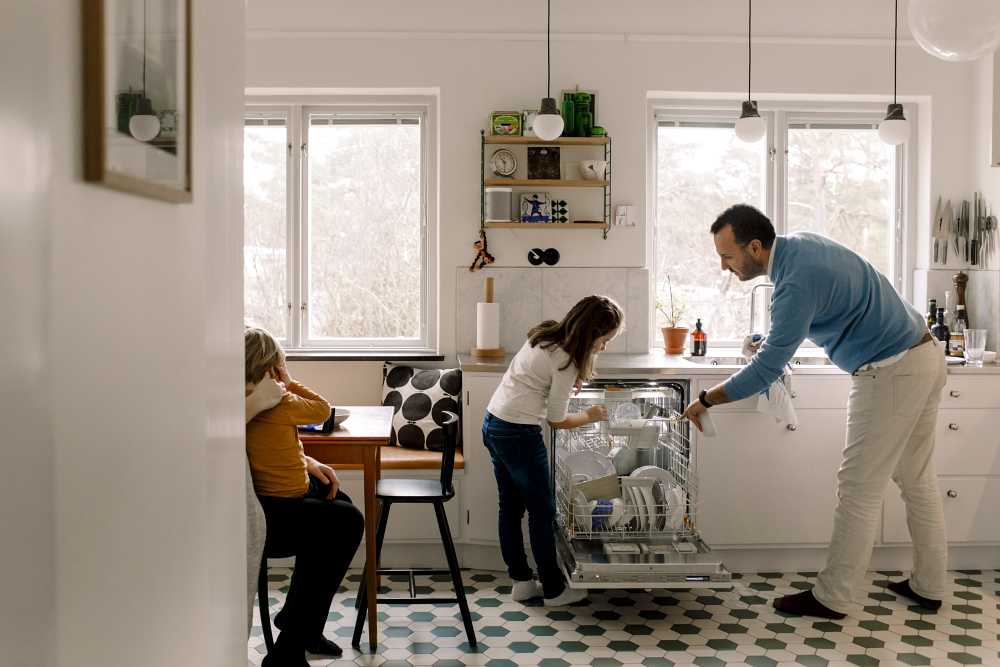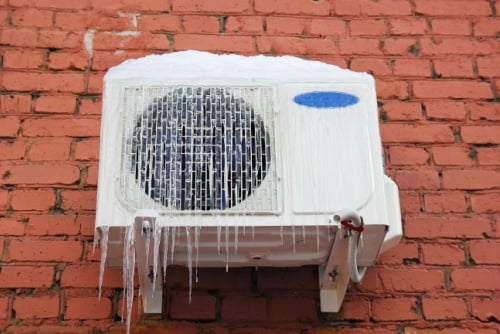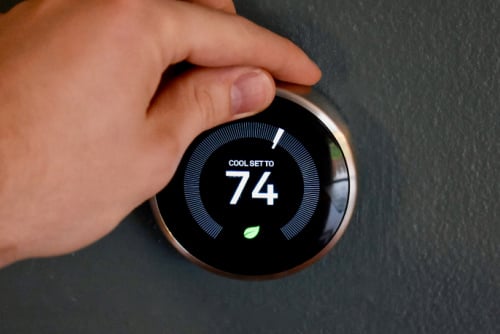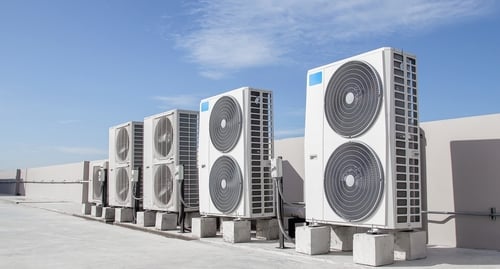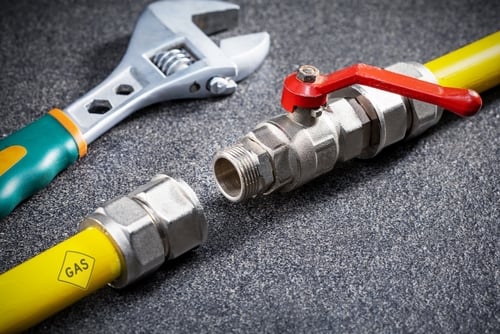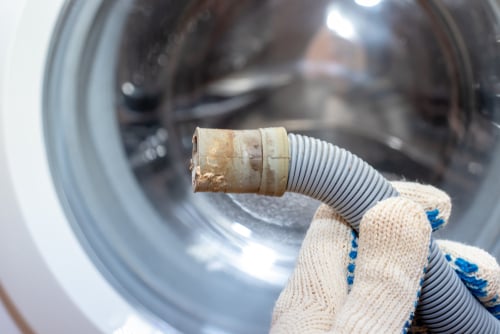Home appliances work day in and day out to keep your household running smoothly. Keep them running long-term with these simple cleaning tips.
Home appliances work day in and day out to keep your household running smoothly. They are also a sizable investment, so you want them to perform well over the years. One of the best ways to extend the lifespan of your appliances and reduce energy costs while you’re at it is to clean and maintain them properly.
In this article, we have partnered with cleaning experts Merry Maids, to share some simple tips for cleaning and maintaining your home appliances.
Why you should be regularly cleaning your appliances
While proper appliance maintenance may not be at the top of your to-do list, what you may not realize is that the benefits of cleaning your appliances are twofold.
The overarching advantage of a well-kept appliance, whether it’s a washing machine or refrigerator, is the fact that it’ll last longer without the need for repairs or replacement. This is because a well-oiled machine almost always runs more smoothly, meaning you’ll be able to extend the lifespan of your appliance.
Lifetime aside, what’s probably more pressing is that proper appliance cleaning can also boost energy efficiency for washers and dryers, and food safety for refrigerators, microwaves, and ovens.
Cleaning professionals Merry Maids have shed some more light on why it’s essential to keep your cooking and food storage appliances in tip-top shape.
“For food-storage appliances like deep freezers and refrigerators, one of the main benefits of cleaning is to ensure your food stays fresh,” they say. “An unclean environment can invite germs and bacteria to grow on or around your food, which can cause severe health conditions when consumed.”
For cleaning appliances, Merry Maids suggests that maintenance plays a key role in keeping your machines running smoothly.
“For more general appliances, such as dishwashers and washing machines that exert large amounts of energy in smaller durations, cleaning these machines can go a long way in making them more energy efficient (so you can save on your utility bills), allowing them to wash items more effectively, and preventing issues like overflowing water that could mean costly restoration and cleanup charges,” they explain.
Appliance cleaning and care tips
After the why comes the how, and there’s no exception when it comes to appliance care. It takes more than just intending to get your appliances clean, and in some cases, some elbow grease may be required.
The most important thing to remember is that when cleaning appliances, they should be off for safety.
Cleaning experts Merry Maids suggest that knowing how to clean is one thing, but understanding how to clean well is another.
“For any appliance you’re cleaning, hot/warm water is going to become your best friend. Don’t underestimate the power of simple water and some elbow grease as foundational for cleaning appliances gently—especially stainless-steel appliances.”
Merry Maids also shares some more appliance-specific tips for more thorough cleaning of your fridge, oven, clothes washer and dryer, dishwasher, and microwave.
How to clean your refrigerator and freezer
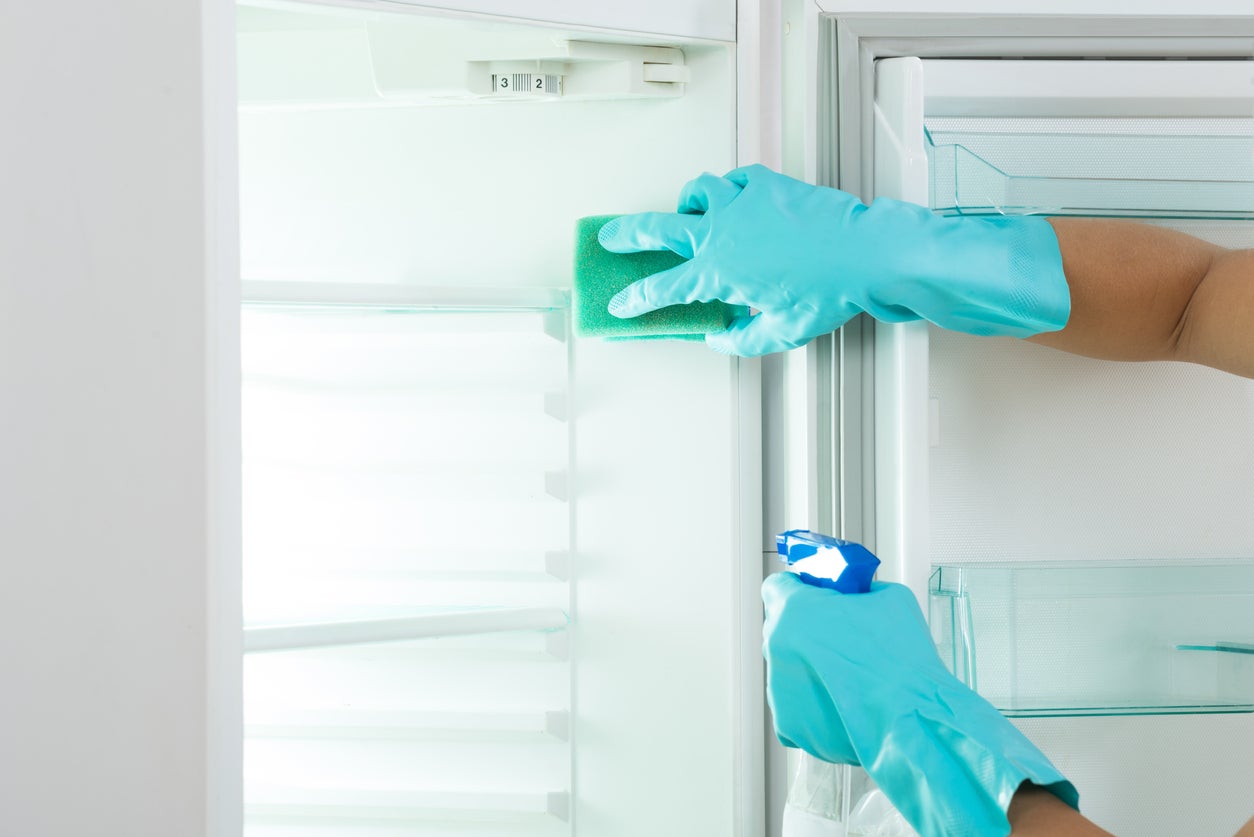
Let’s face it, calling the fridge repairman is a hassle, and what’s even more annoying is forking out your hard-earned cash on a faulty fridge seal. The good news is that with a little bit of refrigerator maintenance, you’ll avoid that dreaded phone call for a little bit longer.
Whether you’re wondering how to clean your stainless steel, white refrigerator, or freezer, cleaning professionals Merry Maids suggest a gentle approach.
“Get every nook and cranny of your refrigerator inside and out, including the rubber seals. Use a gentle cleaner like baking soda and warm water to remove odors and soak any removable shelves in hot/warm soapy water,” they say.
To clean refrigerator coils, you could invest in a fridge coil brush, but any sort of long soft bristle brush should work. Access your coils either behind or underneath your turned-off fridge, gently brush the dirt away, and vacuum the area.
As far as prevention goes, keep your fridge in top shape by not overcrowding shelves or the door, which can sag and affect the seal. When it comes to your freezer, make sure you’re defrosting and cleaning your freezer at least once every few months, especially if there’s frost build-up.
How to clean your oven

Ovens are quite often the oldest appliances in a home. On average, they last between 13 and 15 years, but that can vary depending on how often it’s used.
The best way to clean your oven is as you go, especially when you notice baked-on food grease or oven smoking. As a general rule of thumb, clean your oven every month if it’s used often or every once in a while if it’s mostly off.
To answer the question of how you’ll need to think about your oven in three parts: The oven racks, the inside surfaces, and the oven door glass.
Cleaning oven racks is made easy with the use of a trash bag or bathtub. The key is time—you’ll need to soak your racks in hot, soapy water overnight, or spray on a degreaser and tie them up in a trash bag for a few hours. After soaking, simply wipe away the residue with a cloth.
For the inside surfaces, a homemade cleaning paste made with baking soda and water will be your best tool. Scrub the sides of the oven using the paste, allow it to soak, and then wipe the residue away with warm water vinegar, and a cloth. When considering how to clean oven door glass, repeat these steps without harsh scrubbing to avoid causing damage to your appliance.
How to clean your washing machine and dryer
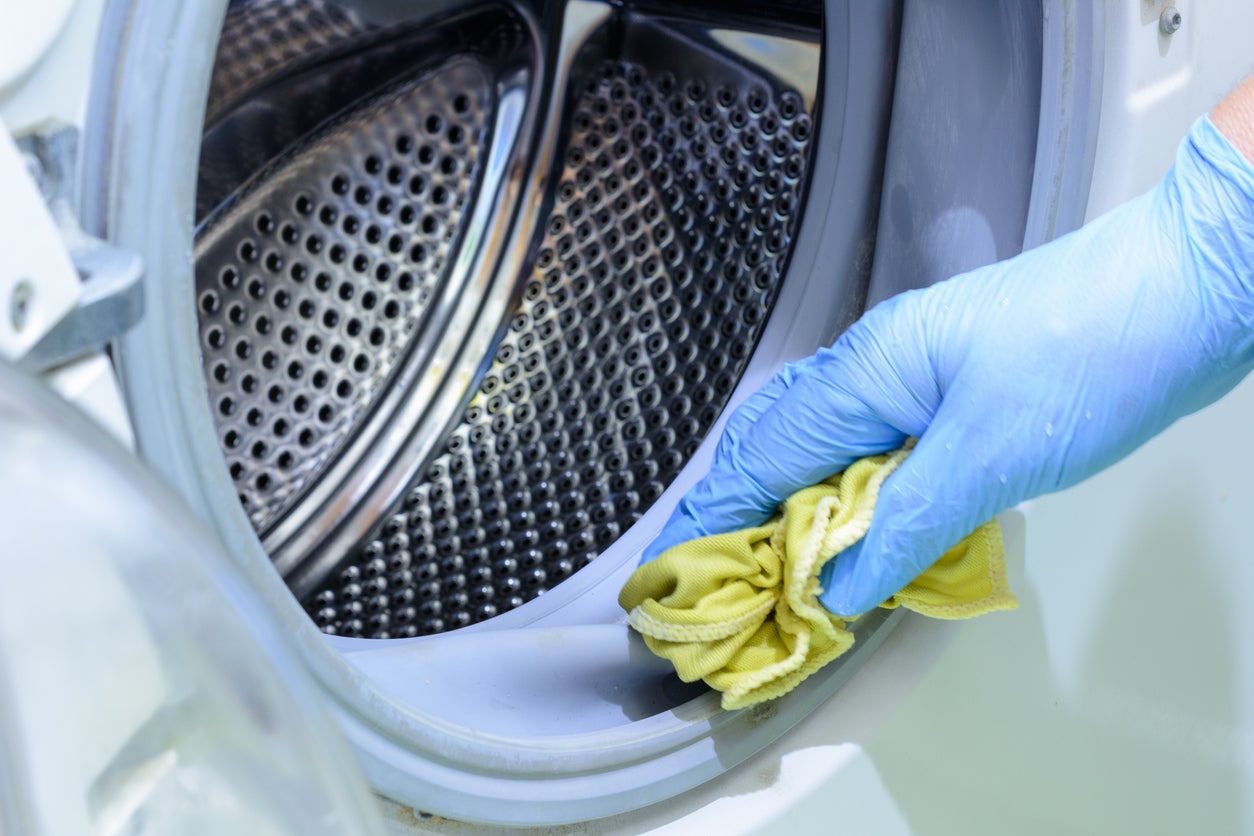
They’re big, they’re expensive and they’re heavy. Repairing or even replacing a washing machine or dryer isn’t going to be a walk in the park, so you should try and keep them in good condition to improve their lifespan.
As with any appliance, regularly cleaning your washer or dryer will help it run smoothly, but how do you clean a cleaning appliance? Here’s what the experts at Merry Maids have to say: “Once a month, set your washing machine to the hottest water cycle, add 1/2 cup of baking soda, and let it run as usual (without clothes). Baking soda will deodorize and neutralize any odors, as well as clean your washing machine for better future operation.”
There are a few differences in how to clean a top load washing machine and how to clean a front load washing machine, with top loaders requiring a few extra steps. Before the baking soda rinse, consider adding a few cups of bleach to your empty load, letting it soak for at least an hour.
Merry Maids has also provided some advice on how to clean your dryer as well as how to prevent waxy build-up.
“Limit using dryer sheets and fabric softeners as they can leave residue on your dryer’s walls and clog the lint trap,” they say. “Use a microfiber cloth or damp sponge with baking soda to wipe down the inside of your dryer and let air dry.”
How to clean your dishwasher

Unlike some other appliances which can go a little while in between cleans, a dirty dishwasher means dirty dishes, rendering it pretty much useless. Your first step in cleaning your dishwasher is prevention, and that means checking your dishwasher after each use, according to cleaning professionals, Merry Maids.
“After each dishwashing cycle, make it a habit to pull out the bottom rack and look for any small bits of food. You don’t want stuck-on food molding and causing an unsanitary environment inside your dishwasher,” they say.
At least once a month you should also be washing your dishwasher with vinegar and baking soda. Run separate, hot washes with a cup of each to descale and unclog your machine.
If it’s still not draining after that, you might consider cleaning your dishwasher filter before you schedule dishwasher repairs. Remove the filter and run it under a hot tap. Afterward, use an old toothbrush or specialty brush to gently clear away any old residue.
How to clean your microwave
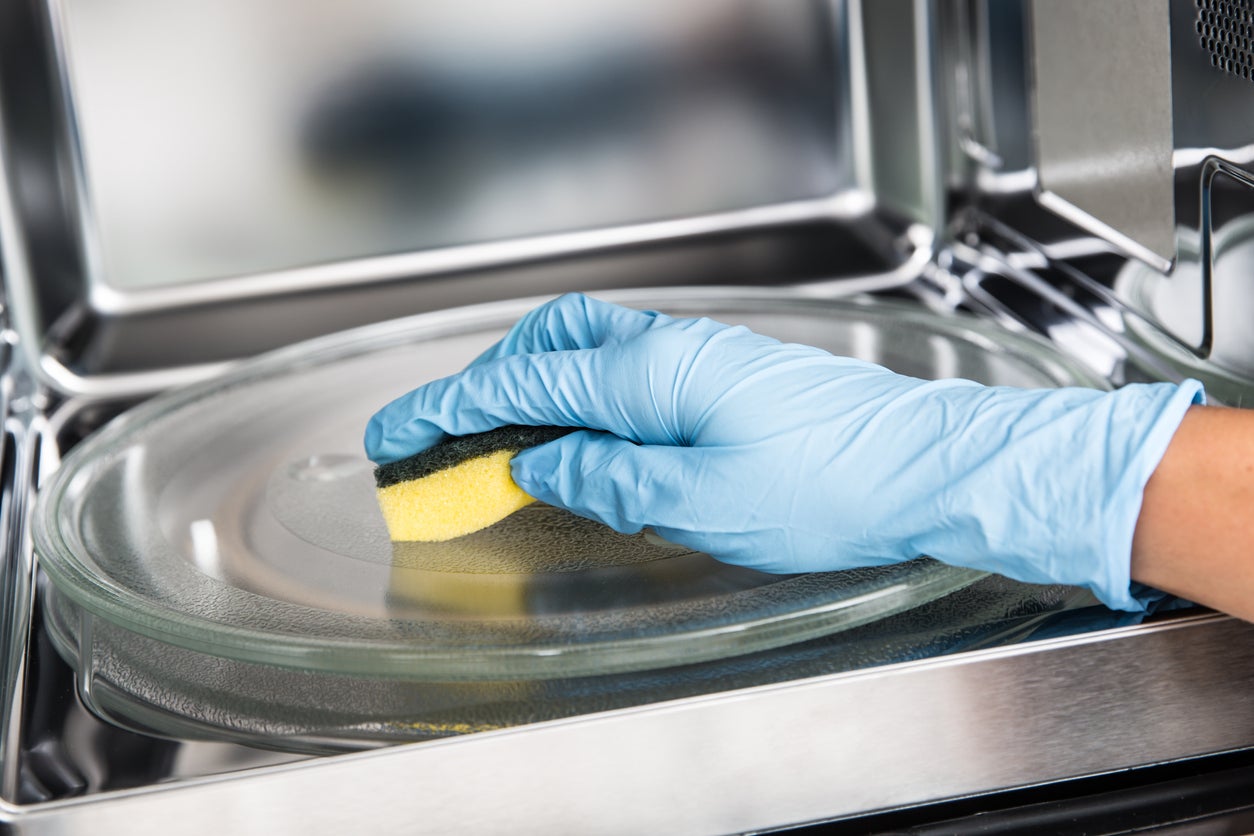
Whether you have a built-in or countertop microwave, you’ve probably noticed just how quickly it can get dirty. The best way to clean a microwave is with vinegar or lemon, which both have degreasing and odor-neutralizing properties. The cleaning specialists at Merry Maids have made it easy to get your elbows greasy with some simple steps.
“Avoid using harsh chemicals inside your microwave or spraying anything inside of it. Instead, use a microwavable bowl, add 1/3 cup of water and a tablespoon of white vinegar, and microwave for 3 to 5 minutes. Alternatively, you can use a lemon instead of water and vinegar,” they say.
“After the appliance turns off, carefully remove the bowl and wipe the inside thoroughly.”
Don’t forget to wipe down the outside with a cloth and some diluted vinegar or other cleaning products.
Common cleaning mistakes and how to avoid them
Mistakes are bound to happen as you learn how to treat your appliances with proper care. We’ve let you in on some of the most common cleaning mistakes so you know what NOT to do.
Using abrasive tools
There’s a common misconception that to get things really clean, you’ll really have to put your back into it, but nine times out of 10, that’s simply not the case. In fact, our friends at Merry Maids advise that you run the risk of scratching your appliance when using scratchy cleaning sponges or brushes.
“One common mistake people make when cleaning appliances is using abrasive cleaning tools that remove food stains and scratch the appliance’s surface.
“It’s always a good idea to allow cleaning products to soak on stuck-on stains so you don’t have to exert a lot of unnecessary energy scrubbing or potentially damaging your appliance,” they recommend.
Applying harsh chemicals
Much like abrasive brushes can damage your appliances, so too can harsh chemical products. What’s is that these products can emit noxious fumes, which may cause adverse health effects.
According to the authorities on cleaning at Merry Maids, using non-toxic homemade cleaning products will not only protect your appliances but also your health.
“Baking soda is a natural cleaning product that many people overlook. Baking soda can easily remove stains and odors and leave surfaces and fabrics completely clean without compromising health or air quality,” they say.
White vinegar is another safe cleaning product that can be used in anything from your refrigerator to the microwave to the washing machine.
“When you mix baking soda and white vinegar, you get a holistic powerhouse cleaner that gently removes stains from appliances and also helps unclog drains, remove hard water stains, and spot-clean carpets,” cleaning experts Merry Maids say.
Cleaning infrequently
Cleaning is a chore for most, so it makes sense that many avoid it until it becomes unavoidable. However, if you’re regularly allowing stains and residue to build up on your appliances before you give them a good clean, you could be shortening their life without even realizing it.
How often you need to clean depends on both your appliance and how often you use it. The cleaning professionals at Merry Maids recommend a sensory sweep before and after each use to make sure there are no foul odors or unsightly stains.
In regards to microwaves, they add: “If you can’t remember the last time you cleaned your microwave, the evidence is probably staring at you in the form of food residue and stains stuck to inside walls and the glass microwave plate. You should immediately give this commonly-used appliance a good scrub down.”
According to the experts, fridges and freezers can be left a little longer.
“Your refrigerator and freezers can be deep cleaned less frequently (if you’re in the weekly habit of ensuring there are no food spills inside) to once every 3 months,” they recommend.
When it’s time to repair or replace your appliances
If you’ve dusted off the refrigerator coils and cleaned the dishwasher filter and are still having trouble with your appliances, it may be time to book in for professional repairs. Even a few more years of use of an appliance can save you money and give you time to shop and plan for a replacement.
And since it’s not always obvious when an appliance should be replaced or repaired, American Home Shield® is here to help. The qualified contractor assigned under your Home Warranty will diagnose your issues and help you decide on your next best course of action. You’ll rest easy knowing that whether repair or replace, you’ll be covered with an Appliance Plan.
Was this article helpful?

